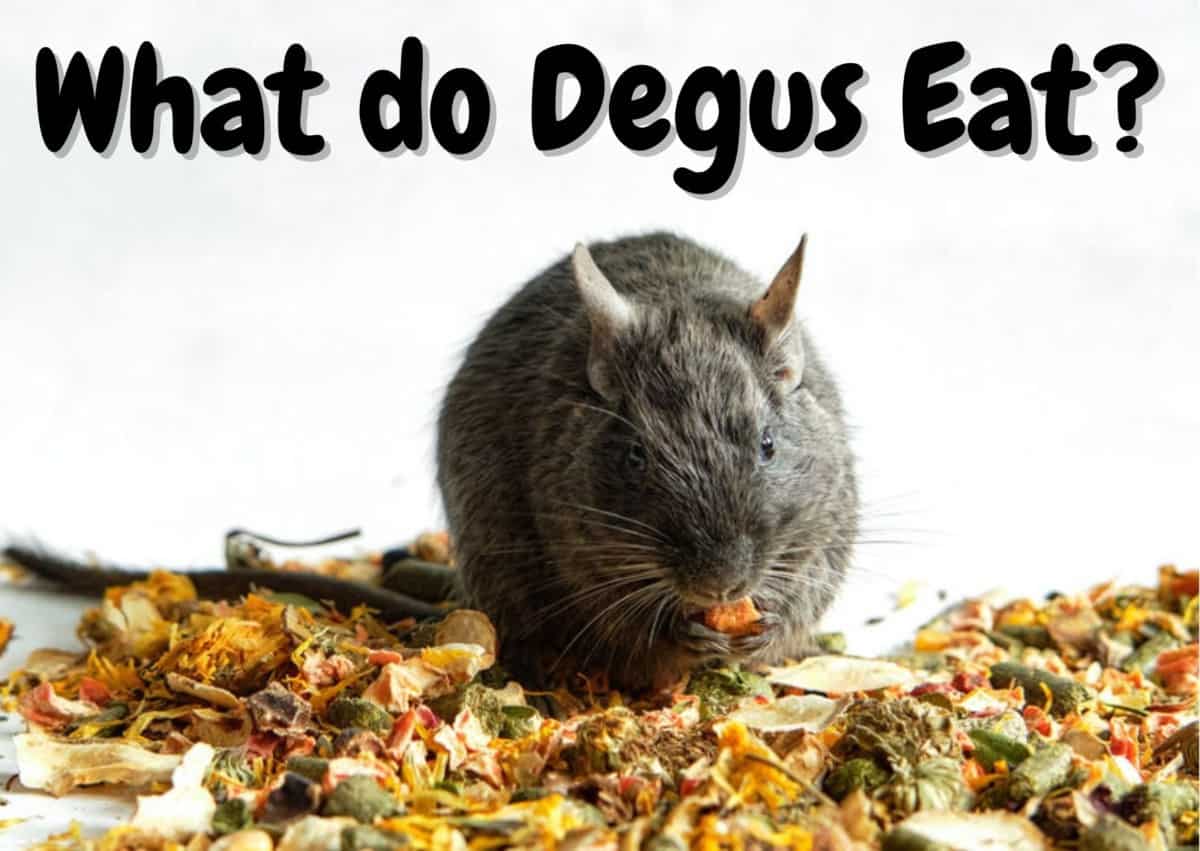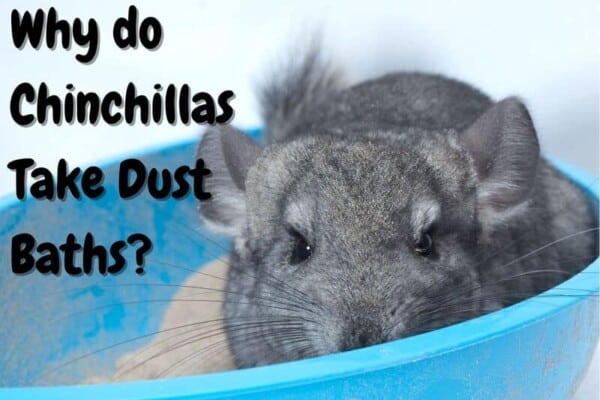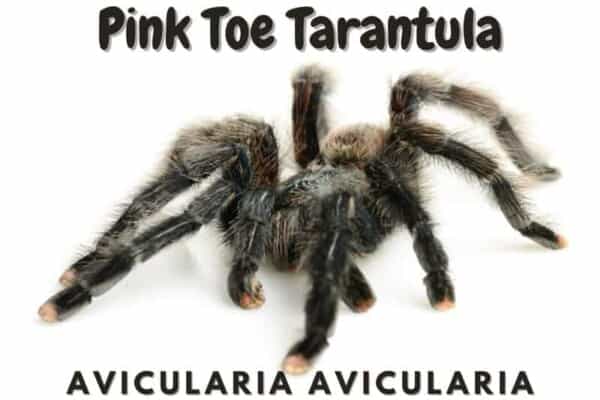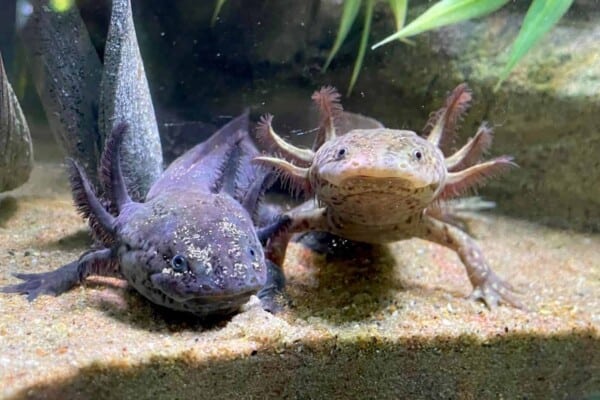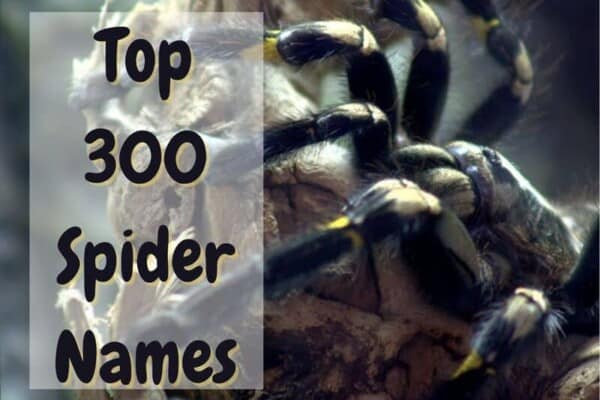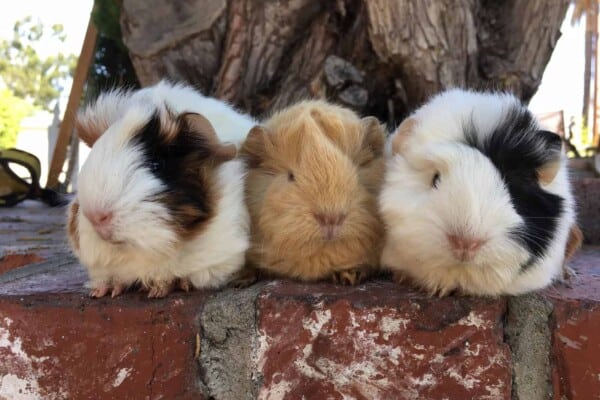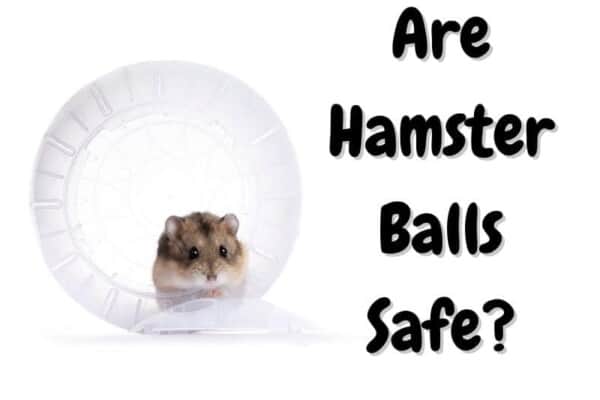Degus are not your average rodents and are very similar to guinea pigs and chinchillas in terms of behavior. They have a diet that is similar to the needs of chinchillas, but they are strictly herbivores. As you’ll find, the degus’ food requirements are a lot easier to take care of than chinchillas’.
This guide will give you a complete run-through of what to feed degus so they can grow up healthy. You’ll also find out what not to give them to avoid health problems that can be costly mistakes.
What type of food do degus eat?
1- Vegetables
Your degu needs vegetables, but not all of them can be given all the time. They have a special feeding schedule that is very rotational. This allows for certain veggies to be given weekly, in moderation, and once a month. Each one of these will be listed here per group so you can get a better idea.
Weekly
- Beetroot,
- butternut squash,
- green pepper,
- pumpkin,
- radish,
- spring onion
In moderation
- asparagus,
- beans,
- broccoli,
- Brussels sprouts,
- cabbage (all types- but very limited amounts),
- carrot tops,
- cauliflower (leaves and stalk),
- celery,
- dandelion leaves,
- green beans,
- Jerusalem artichoke,
- kale,
- lettuce,
- leek,
- parsnip,
- spinach,
- Swede,
- watercress,
- zucchini.
Once a month
- apple,
- cucumber,
- cherry tomato,
- peas,
- sweet corn (corn on the cob),
- sweet potato (raw or cooked)
2- Fruits
Do not give your degu any fresh fruits except apples since the natural sugars involved are not going to be healthy for them. If you do decide to give them a fruit treat, dried fruits that are low in sugar are best recommended. You can give them dried apricot, raspberries, or cranberries once a week because they are very low in sugar. Raisins are fine but this should only be given to them once a month.
3- Herbs and flowers
The following dried herbs can be given once a week. They can also be given fresh, though in moderation:
- basil,
- comfrey,
- coriander,
- dandelion leaves,
- dill,
- fresh grass,
- dried rose petals,
- lemon balm,
- mint,
- marigold flowers,
- oregano,
- parsley,
- rosemary,
- sage,
- thyme.
4- Cereals and nuts
- anise,
- barley,
- caraway,
- Cheerios,
- celery,
- coriander,
- cumin,
- dill,
- fennel,
- flax,
- lentils,
- millet,
- Nigella,
- oats,
- poppy,
- pumpkin,
- rice (wild),
- rye,
- sesame,
- sunflower,
- watermelon seeds,
- wheat.
5- Pellets
Degus love eating pellet food that is made for them, but they can also eat chinchilla and guinea pig pellets that are made from Timothy hay and have high amounts of processed grass fiber. Additionally, you can give them veggie sticks that have hay mixed into them.
You have to be careful that some pellet mixes with seeds in them are clearly marked only for degus, chinchillas, or guinea pigs. Some rodent mixes have items in them that your degu cannot digest easily. They can also have seeds that are too high in sugars and fats. You should also avoid mixes with corn and sunflower seeds.
As long as you give your degu the pellet food that is recommended for them, it is a good option. Just be sure to avoid pellet food that is processed with molasses. This has too much sugar content and will make them fat. At all costs, don’t give them birdseed mixes, since these are not meant for degus.
6- Grass
Degus love good dry hay they can munch on for most of the day. Your bale should include Timothy and Meadow hay. It’s always a good idea to look for hay that is a natural color. If your hay is brown or green, it will not be good for a degu. Green dry hay will also cause degus to bloat. Here are three types of grass you can confidently give your degu:
- Timothy hay
- Meadow hay
- Alfalfa hay (only in moderation and in very small amounts occasionally is fine)
7- Chewing snacks
Degus love chewing snacks of all kinds since this helps keep their teeth from overgrowing. You have to show some caution here since they need chewing snacks that apply only to their breed. Cross-over chew snacks meant for chinchillas and guinea pigs are fine.
8- Wood snacks
In the wild degus enjoy chewing bark but your degu will certainly enjoy the following woods:
- apple sticks,
- arbutus, ash,
- bamboo cane,
- blackberry branch,
- black currant branch,
- cholla,
- coconut shell,
- cottonwood,
- crabapple branch,
- dogwood,
- grapevine,
- hawthorn
- hazelnut branch,
- kiwi branch,
- linden
- manzanita,
- mulberry branch,
- pear,
- pecan,
- white pine (kiln-dried),
- poplar,
- quince,
- rosehip,
- sycamore.
Do degus eat meat and insects?
Since degus are herbivores, they have no need to eat meat or insects. They might attack a bug that wanders into their cage, but they might not be interested in eating it.
Cooked meat is off-limits and won’t be good for them to digest. They cannot eat cooked eggs of any kind, but they can chew the eggshell in small quantities. This is actually good for adding calcium to their diet.
Can Degus eat other pet foods?
Yes, they can if it happens to be from guinea pig or chinchilla food only. They cannot share rabbit, gerbil, or hamster food at all. The only exception is that some of the food that is made for guinea pigs or chinchillas is made with molasses. These pellets or snacks need to remain free from this as this will cause your degus to gain considerable weight.
Degu diet Do’s and Don’ts
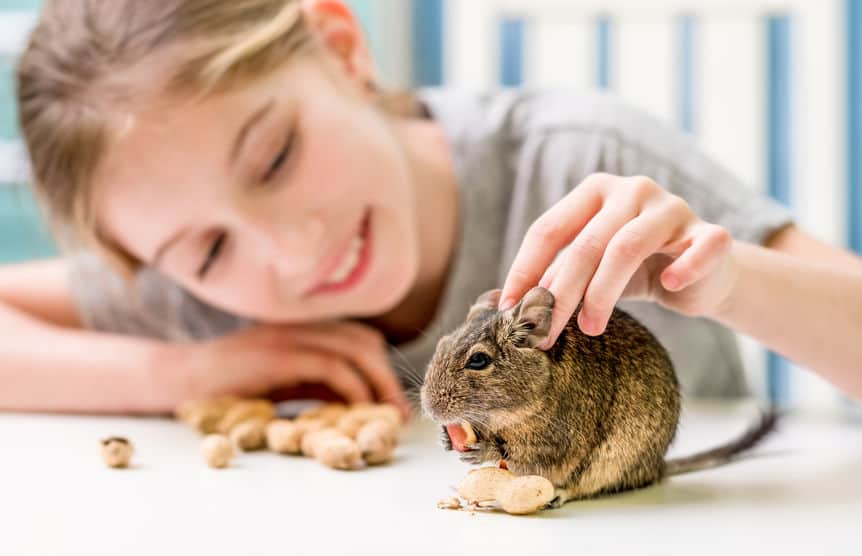
Don’t feed your degu these foods
Your degu is going to eat anything you give to them, and the worst part is that they will likely enjoy these foods. Some of this food will be problematic for their digestive system. For that matter, you need to avoid giving these tempting treats:
- Fruits that are high in sugar,
- anything with molasses,
- starchy foods,
- cabbage,
- carrots,
- dried fruits and nuts high in fat and sugar,
- bread,
- kid’s cereals with sugar added,
- chocolate,
- caffeine,
- Weetabix that has added sugars,
These also include chives, onions, garlic, leek, sweet potato skins, and any potato skin, cooked or boiled egg.
Beware of toxic wood
There is a long list of types of wood that will make your degu sick:
- abale/esia,
- alder,
- almond (this wood produces cyanide),
- apricot,
- aspen,
- balsam fir,
- beech,
- birch,
- black locust,
- blackwood,
- bogwood,
- boxwood,
- buddleia,
- cashew,
- cedar,
- cherry,
- citrus (all forms of citrus),
- cocobolo,
- cypress/bald cypress,
- dalhoma,
- ebony,
- elang/mukulungu,
- elder/elderberry,
- elm,
- eucalyptus,
- fig/cape fig,
- fir,
- goncalo alves,
- greenheart,
- hemlock,
- horse
- chestnut,
- iroko,
- juniper,
- kapok,
- laurel
- magnolia,
- mahogany,
- mansonia,
- maple,
- mimosa,
- mopane/mopani,
- myrtle,
- nectarine,
- oak/cork,
- obeche/abachi,
- okuhaba/yungu,
- oleander,
- olive,
- opepe/kussia,
- paduak,
- pau ferro,
- peach,
- peroba rosa,
- pine (fresh is toxic)
- plum,
- plywood,
- prune,
- purpleheart,
- quebracho,
- redwood,
- rosewood,
- satinwood,
- sassafras,
- sequoia,
- snakewood,
- spruce,
- teak,
- walnut,
- wenge,
- willow,
- yew,
- Yunnan,
- zebrawood.
Give them recommended foods only
Your degu needs a balanced diet that allows a certain amount of vegetables during the week. They do need to eat select types of veggies that are not going to throw off their nutritional needs. Since they eat more hay than anything else, vegetables are a supplement.
They can’t eat fruits that are high in sugar. This includes snacks and items that are filled with added sugar. Selected items such as potatoes and sweet potatoes need to have their skin removed first.
There is a risk of eating certain food that can make a degu overweight if they are not given a regular diet. While it’s cute to give them seeds that are very tasty, they can get fat from them because seeds contain lots of hidden fat that can pack extra weight. This is also why you can’t give any kind of fruit that contains lots of natural sugar, as this will cause a degu to gain weight too quickly.
A good way to regulate your degu’s weight is by including a wheel in their cage setup to allow plenty of physical exercise in their daily routine.
Give your degu fresh vegetables and plants only
While most flowers and herbs can be dried and given to a degu, vegetables are better when they are fresh. They don’t need to be sliced into small bits since they like gnawing on things. As long as they are chopped up into smaller bits, they can have a variety of veggies.
How to feed degus: how often, how much, and when
How often can I give food to my degu?
You can feed your degu twice a day at a feeding schedule that works best for you. Your degu should also have dry hay available all day long. This way they can eat their regular meals while keeping their daily foraging habits.
How much food do they need each time?
A fully grown degu will eat a total of 10 grams of food, pellets, seeds, and vegetables. This will amount to 1-2 tablespoons of various bits of food you prepare for each feeding. Since they need to eat twice a day, the 10 grams are split into 5 grams per serving. As long as you calculate how much food to give them versus the number of degus in your cage, they will have enough for each feeding.
When should degus be fed?
The best time to feed degus is early in the morning and then again once in the early evening. You can decide which times work best for your work schedule. You can also associate your feeding time with playing and interacting with your degu every day.
How about baby degu feeding habits?
Baby degus start eating regular food at just 4 weeks old. You can give them seeds and nuts so they get used to chewing regularly and introduce the dry pellets too. As they get older, make sure they have a variety of fresh veggies. They will eat less than half a tablespoon per feeding at least 3 times a day.
Examples of degu food recipes
1. Degu oat-crunch balls
Take equal portions of half a cup of Oats and breadcrumbs, add 3 tablespoons of mashed sunflower seeds, and put them in a food processor. Then add a little bit of water so it gets paste-like. You can then take a teaspoon and scoop gumball-sized servings and put each ball onto a baking sheet.
These need to be baked at 100 degrees for one hour or until they are dry and crunchy again. Give these special treats each week. The rest can be stored in a plastic bag.
2. Vegetable herb cream and cracker
Take some fresh herbs like basil, coriander, or parsley of your choice and mix this with cooked butternut squash or pumpkin until they are mashed together. Then spread this onto a Weetabix cracker. Give this as a healthy meal your degu will enjoy devouring.
Degu treats 101
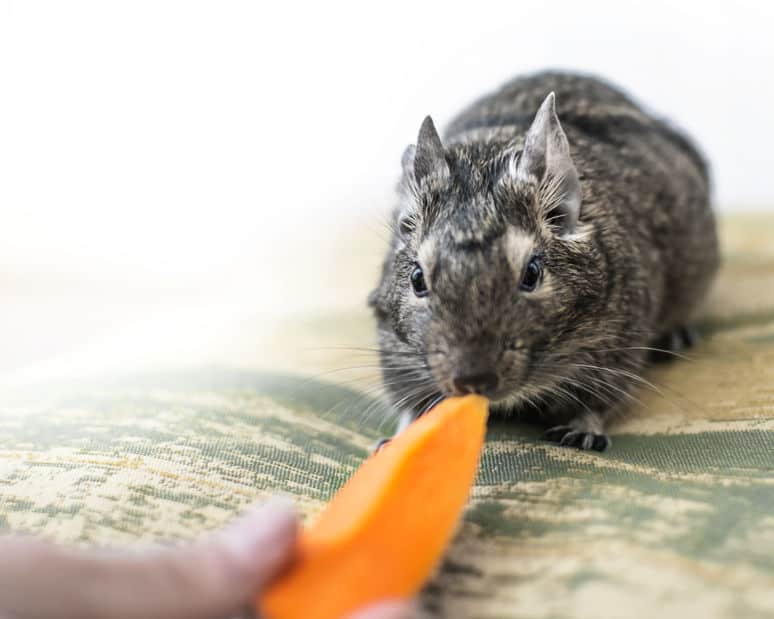
What kind of treats should I feed my degu?
You can give your degu treats that are low in sugar. You can also give certain fruits like apricot or apple in small quantities. Then again, you can choose sensible treats like fresh sweet corn. Each piece of corn can be removed individually and given as separate treats for each degu you own.
How often can I give my degu a treat?
Treats need to be rational choices since you don’t want to overfeed them. These can be given weekly but not daily. Certain vegetables and herbs can be given daily if they show more interest in them.
What and how do degus drink?
- Bowl: If you have a colony of degus, they will appreciate a drinking bowl as long as this is in a part of their cage they are not scampering around or through. This will make their water dirty and get them wet, which is always bad. It can be elevated so they have to climb up onto a slightly raised platform to get to this water source.
- Dispenser: A dispenser is also good but with more than one degu in your habitat, you might need more bottles. They are not drinking so much but it does pay to have a second bottle handy.
How often do degus drink?
Two degus go through one liter of water each month. So having a water bottle filled every day will ensure they get enough water for the amount of hay and pellets they consume. If they are drinking more than three or three and a half tablespoons per day it could be a sign they have a health condition.
What do degus eat in the wild?
Wild degus consume everything plant-based in nature. This includes roots, grass, hay, and a variety of flowers and stems. They will spend most of their waking hours foraging for items that are native to where they live.
How long can a degu go without eating?
One of the most amazing features of the wild degu is that they can live more than a week without eating. But in captivity, you better not attempt this. The maximum amount of time you can go without feeding them is a day or two. This is still unadvised just for their safety but if they access plenty of hay and water, they will be fine. It’s always best to have someone feed your degu if you go on a trip for the weekend.
Read Also:
- A guide to degus behavior – what is your degu expressing?
- Degu Vs Chinchilla – Which One Makes the Best Pet?
References and further reading:
- Nutrition and Behavior of Degus (Octodon degus), Mark S.Edwards
- Nutritional Energetics and Digestive Responses of an Herbivorous Rodent (Octodon degus) to Different Levels of Dietary Fiber, Francisco Bozinovic
- The degu, a desert inhabitant, as a ‘new’ pet – Part 1: Basics of the feeding and nutrition of degus, Julia Hankel

